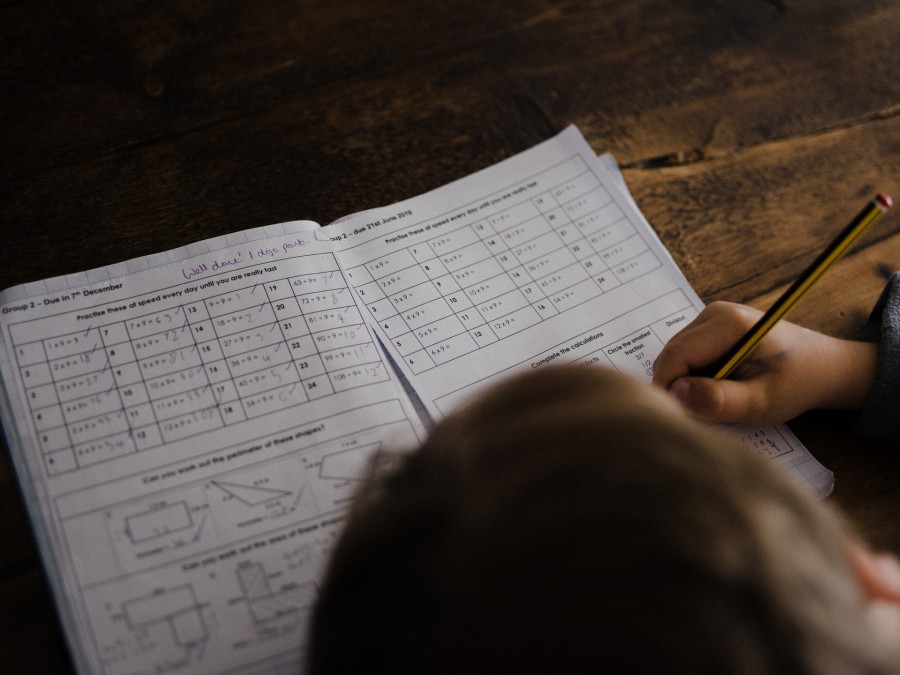Tips for Preparing Children for Tests
Published 28 January 2023 at 22:59
Tickikids Blog Dubai > After-School Activities > Tips for Preparing Children for Tests

Test-taking can be a stressful experience for children, especially when it comes to exams that are important for their future academic success. As parents and educators, it's important to provide our kids with the tools they need to do their best on tests. In this blog post, we'll discuss some tips for helping children prepare for tests both mentally and academically. With these tips, we'll provide children with the confidence and knowledge they need to succeed and reach their full potential. Let's get started!

Use Good Reference Material
Reference materials can be a great tool for helping kids prepare for tests. Make sure to provide children with reliable sources, such as textbooks and online learning resources. Encourage them to use these sources as reference points so that they can review the material and make sure that their understanding is up-to-date before taking a test. For example, people in the UK can learn more on the 11 plus entrance exam by utilizing the 11 plus practice tests and other resources. Likewise, students in the United States can benefit from taking practice tests for the SAT or ACT. Good reference material will provide children with the confidence they need to excel on their tests and help them focus on what information should be reviewed before taking the exam.
Get Well Organized
Organization is key when preparing children for tests. Creating a plan and sticking to it can help students stay on track and ensure they are as prepared as possible. Help your child create an organized study schedule and routine that works with their lifestyle and needs. Give them plenty of time to review the material, break down topics into smaller chunks, and set time limits as needed. Make sure to include a few breaks throughout the process, so your child can stay focused and energized.
Encourage them to use different methods of studying, such as highlighting, creating flashcards, or making mind maps. This will help them retain information better and be more successful on their tests. Finally, remind them to take regular practice tests and quizzes to get comfortable with the format of their upcoming exam. With proper preparation, your child can become confident while they tackle their upcoming test.
Using Positive Reinforcement
Positive reinforcement is an important tool, by providing rewards or praise when a child completes a task or scores well on a practice test, parents can help build their child's confidence and motivation to keep learning and practicing. Positive reinforcement also helps to boost the child's self-esteem, which is especially important before taking an important test.
Additionally, it encourages them to continue working hard and strive for better results. Parents can use rewards such as small tokens, verbal encouragement, or even a special treat after the test is completed. Whatever method you choose, make sure that your child knows that you are proud of their efforts and recognize how hard they have worked.
Provide Emotional Support
It is important to provide emotional support for children when they are studying. It can be difficult to face the pressure of an upcoming exam, and children need a safe and comfortable space in which to express their worries, fears, or anxieties. Parents should make sure that their child knows that it is ok to feel overwhelmed and scared during this time and that they are loved and supported no matter what the outcome.
It is also important to provide encouragement and praise throughout the studying process so that children feel encouraged and motivated to keep working hard. Finally, it is critical for parents to set a positive example through their own good study habits and dedicated attitude towards education. This can help create an environment of productivity, focus, and motivation. Ultimately, providing emotional support is essential for helping children prepare for their examinations.
Hire A Tutor
Hiring a tutor is a great way to help your child, tutoring can provide individualized instruction and allow your child to ask questions in a supportive environment. A tutor can also help children develop test-taking strategies, stay on schedule with their studies, and gain additional practice and confidence in the material they’re learning.
When selecting a tutor, it’s important to find one who is experienced, patient, and knowledgeable about your child’s upcoming test material. A good tutor should be able to explain concepts in an organized fashion and adapt their teaching methods to your child’s learning style. Tutoring can provide invaluable support as children work hard to prepare for their tests.
.jpg)
Provide A Private Study Area
One important tip for helping children is to provide a private study area. Creating a distraction-free environment will help your child stay focused and motivated while studying. Make sure their study area has everything they need, such as the supplies needed for their particular subject matter, access to online resources if applicable, and plenty of light. It is also important to make sure that the space is comfortable and not too crowded or noisy.
Providing a private study area can help your child stay organized, reduce stress levels, and focus their energy on studying for the test. Additionally, it can be beneficial to have a designated time each day when your child spends an hour or two in this area to ensure that they are making good progress and staying on track. By providing a quiet and distraction-free environment, your child will be better prepared for the test.
Sleep Is Extremely Important
Sleep is an essential part of any preparation plan, kids need to get plenty of rest the night before so they can go into their tests well-rested and with a clear head. Additionally, making sure kids are getting enough sleep each night leading up to the test can help them stay alert and focused during their study sessions.
Make sure kids are getting an appropriate amount of sleep each night and that they are able to get a good night's rest the night before the test. This will help them feel relaxed and prepared for their test, instead of being anxious and overwhelmed. If necessary, try to limit afternoon activities or digital media use so your child has enough time to properly wind down before bed. Sleep is essential and should always come first.
Regularly Test Their Knowledge In Fun Ways
To help children get ready for any test of knowledge, it's important to make sure they are regularly testing their knowledge in fun ways. One way to do this is through games. Create quizzes and puzzles that can help them test their knowledge while also having a bit of fun. Additionally, consider using apps or online tools that allow kids to practice different areas of the material.
This will ensure they are regularly reviewing what they have learned and can approach tests with confidence. Finally, let children know that making mistakes is okay - as long as they learn from them! That way, instead of feeling stressed or anxious about upcoming tests, they may actually look forward to the challenge. With these tips and tricks in mind, children can feel prepared and confident when it comes time to take a test.
Learn Their Patterns
It is important to learn the patterns of your child’s test-taking style. Find out what kind of material they are able to remember best and how they prefer to study. Some students may do better with visual aids, while others may need more repetition or practice tests. Knowing their preferred pattern will help you tailor the study plan in such a way that it is tailored to their individual needs and strengths, allowing them to reach their full potential. Additionally, provide your child with practice tests and other forms of assessment to help them gain a better understanding of what they should expect when they take the actual test. This way, they will be more likely to feel confident and prepared on test day.
Make Sure They Stay Hydrated
Test preparation can be very tiring and stressful, so it's important to make sure your children stay hydrated throughout the process. Have plenty of water bottles around during study sessions and provide healthy snacks like fruits and vegetables for breaks. Encourage them to drink plenty of water throughout the day, and remind them to take frequent breaks when needed. Staying hydrated is essential for physical and mental health, so make sure to give your children the fuel they need to perform their best on tests.
It might also be helpful to keep a log of how much water your children drink each day and when to ensure that they are staying sufficiently hydrated. Essential nutrients like calcium, magnesium, and potassium are also important for brain function, so make sure to provide a balanced diet with plenty of fruits and vegetables to ensure that they get the nutrients they need. With the right fuel, your children will be prepared to conquer any test!
Ensure Nutritious Food
It is important to ensure that children are getting a nutritious diet, eating healthy food gives children the energy and nutrients they need to focus in class and perform well on tests. Incorporate plenty of fruits, vegetables, lean proteins, and whole grains into meals and snacks. Ensure that children stay hydrated by having access to water throughout the day. Avoid sugary and processed foods, which can lead to fatigue and difficulty concentrating. When children are nourished with nutritious meals and snacks, they will be able to focus more easily on their studies for tests.
Remember, what children eat before tests is equally as important. Avoid unhealthy snacks such as chips and candy that can cause a sugar crash midway through the test. Instead, provide healthy snacks like trail mix, fresh fruit, or whole grain crackers to help keep their energy up throughout the entire duration of the test. With proper nutrition, children can perform at their best during tests.
Take Care Of Their Mental Health
It is important to remember that tests can be stressful experiences for children, so it's essential to make sure that their mental health is taken care of. Encourage them to take breaks from studying and engage in activities they enjoy or other forms of self-care. Talk to them about their worries and fears, listen empathically, and let them know that you are there to support and believe in them. Be mindful of their emotional well-being, since excessive pressure can lead to anxiety which could impair performance on the test.
Also, remind them that tests are not necessarily a measure of their intelligence or worth as a person. Tests are simply one way of assessing what they have learned and should be seen as an opportunity to show off what they know. Help them maintain a positive mindset, and make sure that they keep things in perspective. Above all, try to stay calm and reassuring during this time.
Preparing children for tests requires a combination of practical, emotional, and nutritional support. With adequate practice tests, nutritious meals, plenty of hydration, mental health care, and positive reinforcement; your children will be in the best position to be successful on their test day.